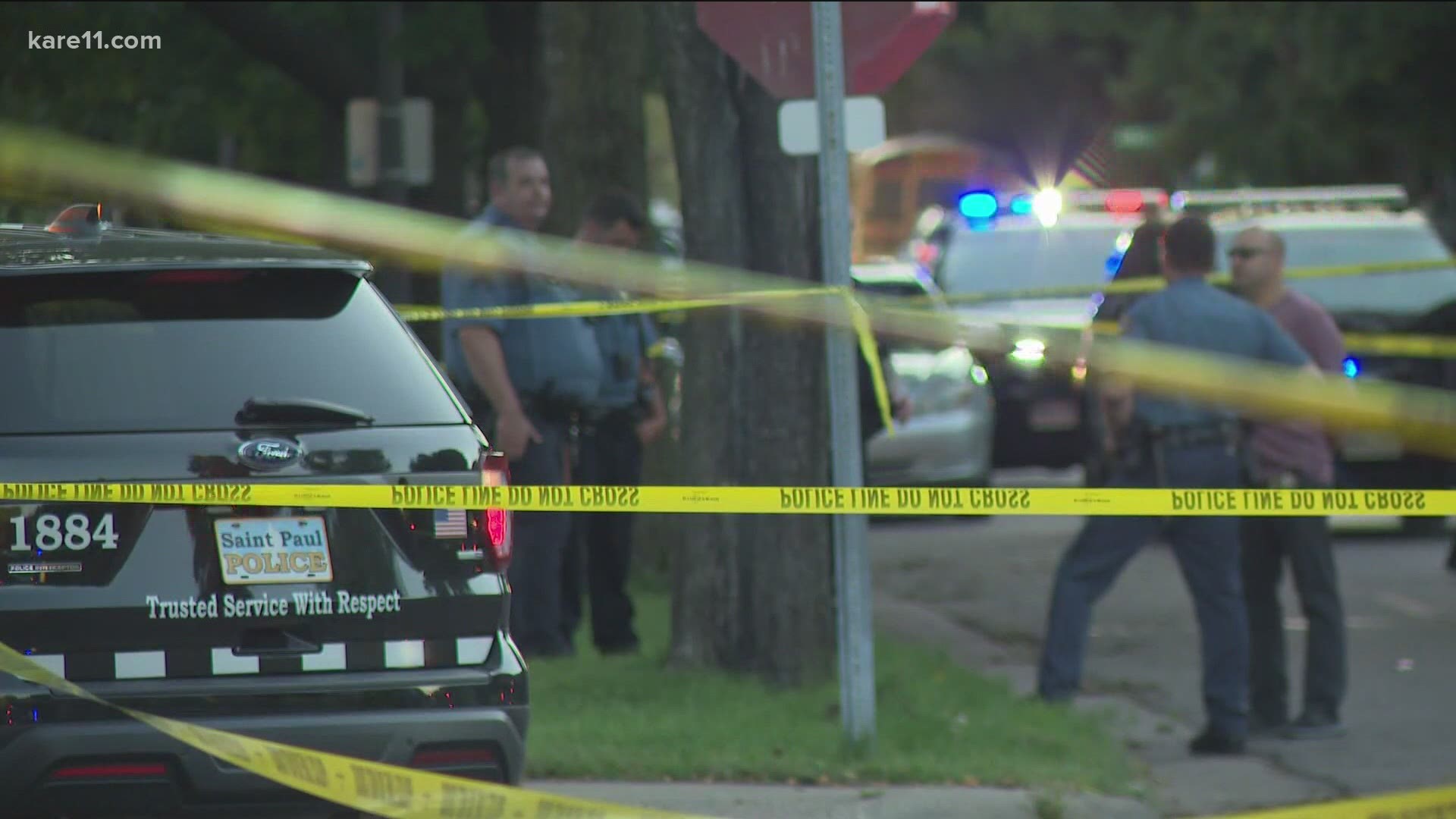ST PAUL, Minn. — Senate Republicans spent four hours Thursday rebuffing efforts by Democrats to add police accountability amendments to the omnibus public safety bill.
The package of mainly funding measures lacked police reforms supported by DFL lawmakers, who hadn't been able to get committee hearings for their reform bills in the GOP-controlled body. Their last-ditch, unsuccessful efforts to add amendments during the floor debate came days after the police shooting of Daunte Wright, a 20-year-old man killed during a traffic stop in Brooklyn Center.
"This bill definitely does not meet the times that we are living in," Sen. Karla Bigham, a Cottage Grove Democrat told her colleagues.
"Communities that are hurting right now, communities that are traumatized, they need us to do our job so that they have a voice. So they feel like they're being listened to, so they feel like they're not being forgotten."
Republican Senate Majority Leader Paul Gazelka said at this late stage in the game lawmakers need to focus on their constitutionally mandated duty to pass a two-year balanced budget by May 17, rather than tackling legislation that lacks bipartisan support.
He also pointed to the law enforcement reforms the Legislature passed last July in the wake of George Floyd's death during an arrest by Minneapolis police. Those included a ban on chokeholds, a duty by officers to intervene in excessive force situations, a ban on police departments paying for warrior style police tactics training.
"The death of Daunte Wright was tragic, but it doesn't change the fact we've got to get our work done."
One of the DFL amendments brushed aside by Republicans would increase penalties for hate-motivated crimes and increase funding for police training on how to investigate bias crimes. It was offered by Sen. Foung Hawj, a Hmong immigrant who represents part of St. Paul.
"There was a note on a door that told an Asian family 'We are watching you and go back to your country.' Well, this is our country, now. This is my country, now," Sen. Hawj told colleagues.
"You can talk about solidarity. But if you don't change this law, solidary may not be reached."
GOP Sen. Bill Ingebrigtsen of Alexandria, a law enforcement veteran, said police officers treat everyone with respect, regardless of race or national origin. He said he didn't see the need to put into law all the reasons someone might be targeted for a bias crime.
"Sexual orientation, gender identity, gender expression?" Sen. Ingebrigtsen said, as he read aloud from the text of Sen. Hawj's amendment.
"All of that stuff is real, but law enforcement is there to protect everybody. Slow this down, stop this thing of identifying everybody because they want to be identified by something else."
Sen. Omar Fateh's amendment would've given the Police Officer Standards and Training Board, or POST Board, the ability to bar members of known white supremacist groups from serving in law enforcement. The Minneapolis Democrat said his amendment would be consistent with existing state policies that require exemplary conduct from peace officers even when they're off the clock.
Republicans formally objected to Fateh's amendment as being out of order because it was germane to -- didn't pertain directly to -- the public safety bill. They said it wasn't in keeping with Senate rules to add a policy measure to a budget bill.
"We all condemn white supremacy," Sen. Warren Limmer, the Maple Grove Republican who crafted the bill as chair of the Senate Public Safety and Judiciary Committee.
"We're not talking about that. We're discussing whether or not this amendment is germane at this time to this bill. And I contend it is not."
In the end, the public safety bill passed with bipartisan support because, among other things, it will close the "voluntary intoxication" loophole in the state's sexual assault laws that was highlighted in the Minnesota Supreme Court's Khalil decision last month.
The bill also does the following:
- Increases penalties on child pornography
- Increases penalties for sex trafficking and solicitation of children
- Formally outlaws child torture
- Creates harsher penalties for fentanyl
- Increased probation supervision funding
- Expands alternatives to incarceration for nonviolent offenders
- Funds the “Healthy Start Act,” which temporarily releases pregnant and postpartum inmates.
At least 20 Democrats still voted against the bill due to the lack of police reform measures.
RELATED: 'These charges aren't made for police officers': Attorney explains the difficulty prosecuting police

